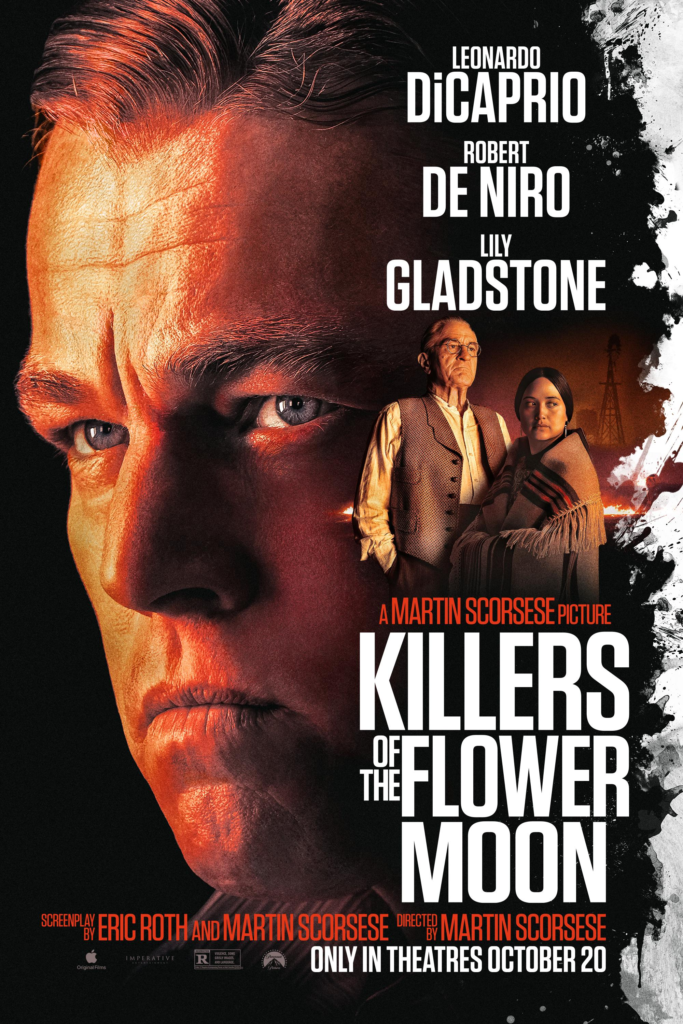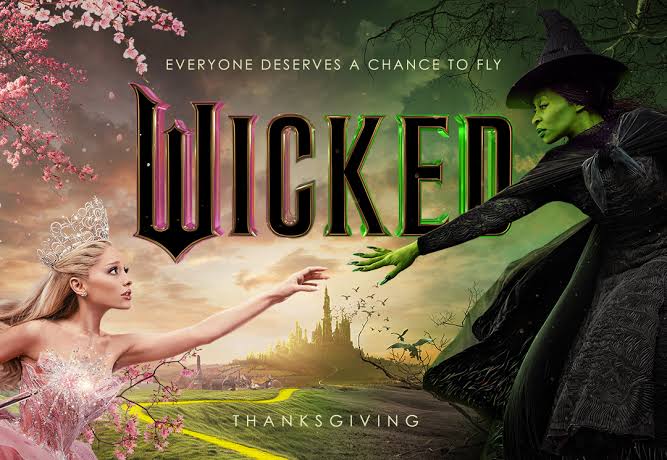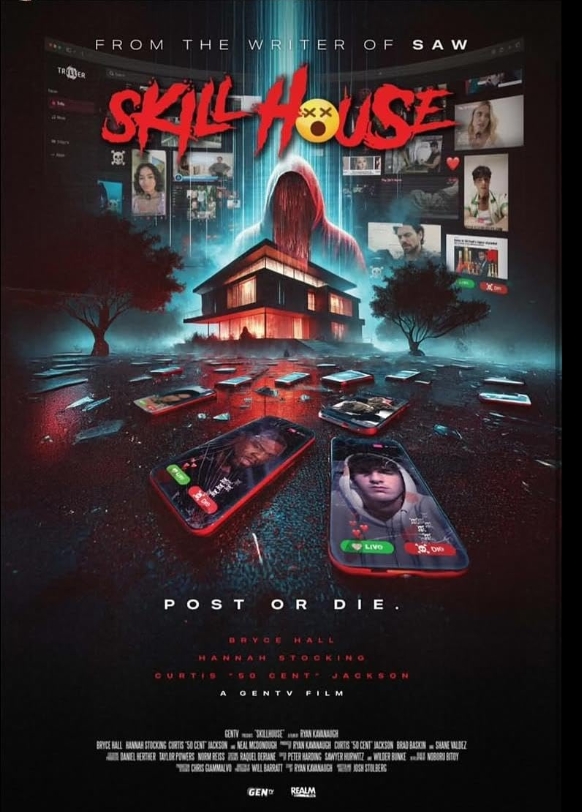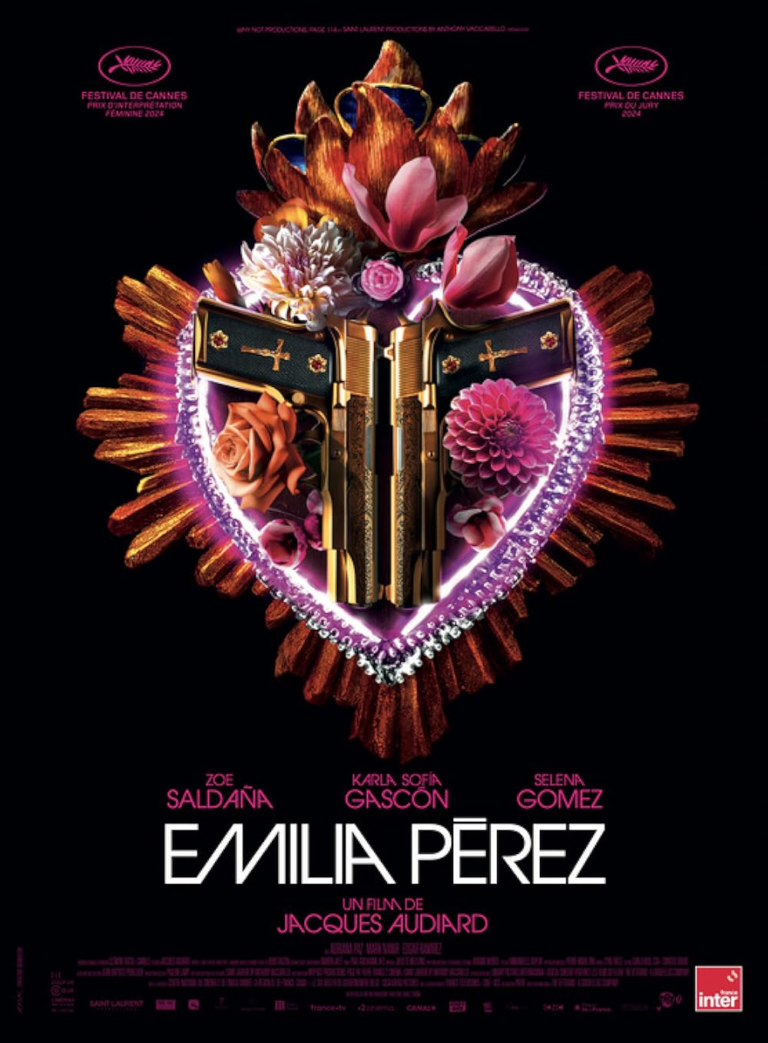Killers of the Flower Moon Christian Review

If cinema has a soul, Martin Scorsese has spent decades searching for it, peeling back layers of humanity’s best and worst to reveal something timeless, raw, and unnervingly true. His latest opus, Killers of the Flower Moon, is more than a film—it’s a relentless, nearly spiritual confrontation with the deep-rooted sins of history. It’s also a challenge, laid squarely at the feet of its audience: how much of the truth can you bear to see?
Set in the rolling, oil-rich plains of 1920s Oklahoma, this is a story of greed and betrayal so vast and sinister it feels like it could have been plucked from the pages of the Old Testament. It’s a retelling of the horrific crimes committed against the Osage Nation, who were systematically robbed and murdered for the wealth that lay beneath their land. The Osage became wealthy—too wealthy for the liking of white settlers, who set about dismantling them one brutal, calculated step at a time.
A Broken Mirror Held to Humanity
At the center of this tragic tale is Ernest Burkhart, played with unsettling brilliance by Leonardo DiCaprio. Ernest is not your traditional Scorsese anti-hero. He’s no towering figure like The Wolf of Wall Street’s Jordan Belfort or even a charismatic outlaw like Goodfellas’ Henry Hill. Instead, Ernest is weak—a man whose inability to reflect on his actions transforms him into a willing pawn in his uncle’s monstrous schemes.
And who is his uncle? None other than William “King” Hale, played with a quiet, venomous power by Robert De Niro. King hides his malevolence beneath a veneer of paternal warmth, a wolf in sheep’s clothing who claims to love the Osage while orchestrating their destruction. In this dynamic, Scorsese explores a chilling reality: that evil doesn’t always look like the devil. Sometimes, it looks like family.
For Christian audiences, this dynamic hits hard. Ernest’s story is one of moral compromise, of choosing the path of least resistance rather than standing for righteousness. His actions—and inactions—echo the words of James 4:17: “If anyone, then, knows the good they ought to do and doesn’t do it, it is sin for them.” Watching his descent is both infuriating and heartbreaking, a painful reminder of what happens when we prioritize comfort over conviction.
A History Written in Blood and Oil
If you’ve ever thought history was boring, Scorsese would like a word. Killers of the Flower Moon is not just about the crimes committed against the Osage; it’s about the broader systems that allowed these atrocities to happen. From the KKK to the Freemasons, the film weaves a tapestry of institutional complicity, showing how deeply racism and greed were—and are—embedded in the fabric of American life.
For Christians, the film serves as a stark reminder of our call to seek justice. Micah 6:8 lays it out clearly: “Act justly, love mercy, and walk humbly with your God.” Yet, as the film so powerfully illustrates, acting justly is not always easy. It requires courage, sacrifice, and a willingness to confront uncomfortable truths—qualities that were tragically absent in those who perpetrated and enabled the Osage murders.
The narrative also connects past sins to present realities, drawing parallels to issues like racial violence, missing and murdered Indigenous women, and our society’s obsession with true crime. It forces us to ask: How much have we really changed? And what are we doing to prevent history from repeating itself?
Sacred and Profane: Scorsese’s Eternal Conflict
One of the most striking aspects of Killers of the Flower Moon is its exploration of the sacred and profane, a recurring theme in Scorsese’s work. The film is steeped in reverence for the Osage culture, which is depicted not as a tragic footnote but as a living, breathing testament to resilience. At the same time, it’s unflinching in its portrayal of the evil that sought to erase that culture.
This duality feels almost biblical. The Osage, like Job, endure unimaginable suffering. Their story is one of survival against all odds, a testament to the human spirit’s ability to endure even in the face of unspeakable evil. And yet, the film never veers into melodrama or sentimentality. It respects its subject matter too much for that, presenting the events with a stark, almost journalistic clarity.
A Cinematic Sermon on Sin and Redemption
At its core, this is a film about sin—not just the obvious sins of murder and theft but the quieter, more insidious sins of complicity and apathy. Ernest Burkhart may not have pulled the trigger, but his silence made him just as guilty. For Christian viewers, this raises uncomfortable questions about our own complicity in systems of injustice. Are we speaking out against racism, inequality, and oppression? Or are we, like Ernest, choosing the path of least resistance?
The film also hints at the possibility of redemption, though it doesn’t offer easy answers. Ernest is given opportunities to confess, to make things right, but his fear and selfishness hold him back. It’s a painful reminder that redemption requires action, not just intention. As James 2:26 says, “Faith without deeds is dead.”
Beauty in the Darkness
Despite its heavy themes, Killers of the Flower Moon is a visually stunning film. From the sweeping landscapes of Oklahoma to the intimate, shadowy interiors where conspiracies unfold, every frame is meticulously crafted. The cinematography, lighting, and production design work together to create a world that feels both hauntingly real and almost mythic.
This attention to detail extends to the performances. DiCaprio delivers one of his most nuanced portrayals yet, capturing Ernest’s internal conflict with heartbreaking authenticity. De Niro is equally compelling, his understated performance making King Hale all the more terrifying. And Lily Gladstone, as Ernest’s Osage wife Mollie, provides the film with its emotional core, her quiet strength a beacon of dignity amidst the chaos.
Content Considerations
Let’s be clear: this is not a light or easy watch. The film’s three-and-a-half-hour runtime is packed with intense, often disturbing scenes of violence and betrayal. While Scorsese avoids gratuitous sensationalism, the subject matter alone makes this a film that requires discernment.
For Christian audiences, the film’s mature themes—greed, racial violence, and systemic evil—are handled with a level of respect and thoughtfulness that makes them worth engaging with. However, this is not a film for children or those who are sensitive to heavy content.
Final Thoughts and Rating
Killers of the Flower Moon is a masterpiece, not just of filmmaking but of moral storytelling. It’s a film that challenges us to look inward, to confront our own failings and the failings of the systems we’re a part of. It’s a call to action, a reminder that seeking justice is not optional for those who follow Christ.
But it’s also a lament—a mourning of the lives lost, the culture stolen, and the humanity erased. It doesn’t offer easy answers, but it does leave us with a profound sense of urgency to do better, to be better.
- Artistic Merit: 10/10
- Christian Reflection: 8/10
- Overall Rating: 9/10
Scorsese has given us not just a film but a mirror, one that reflects both the worst of humanity and the possibility of redemption. The question is, will we look away, or will we let it change us?




